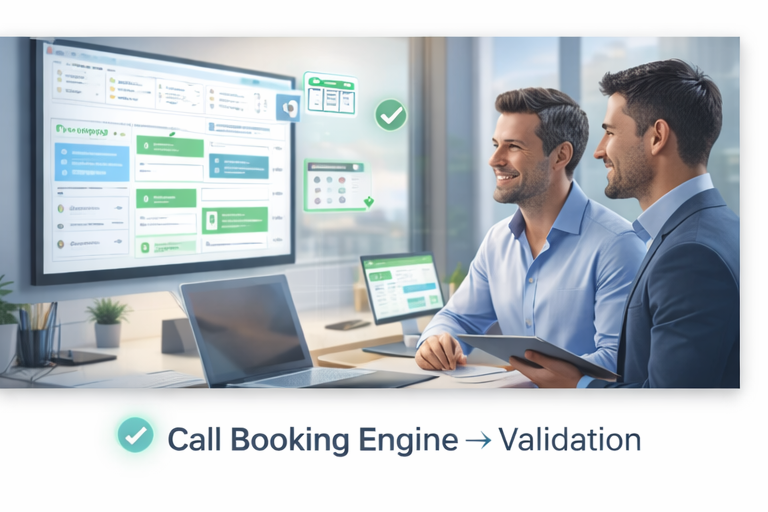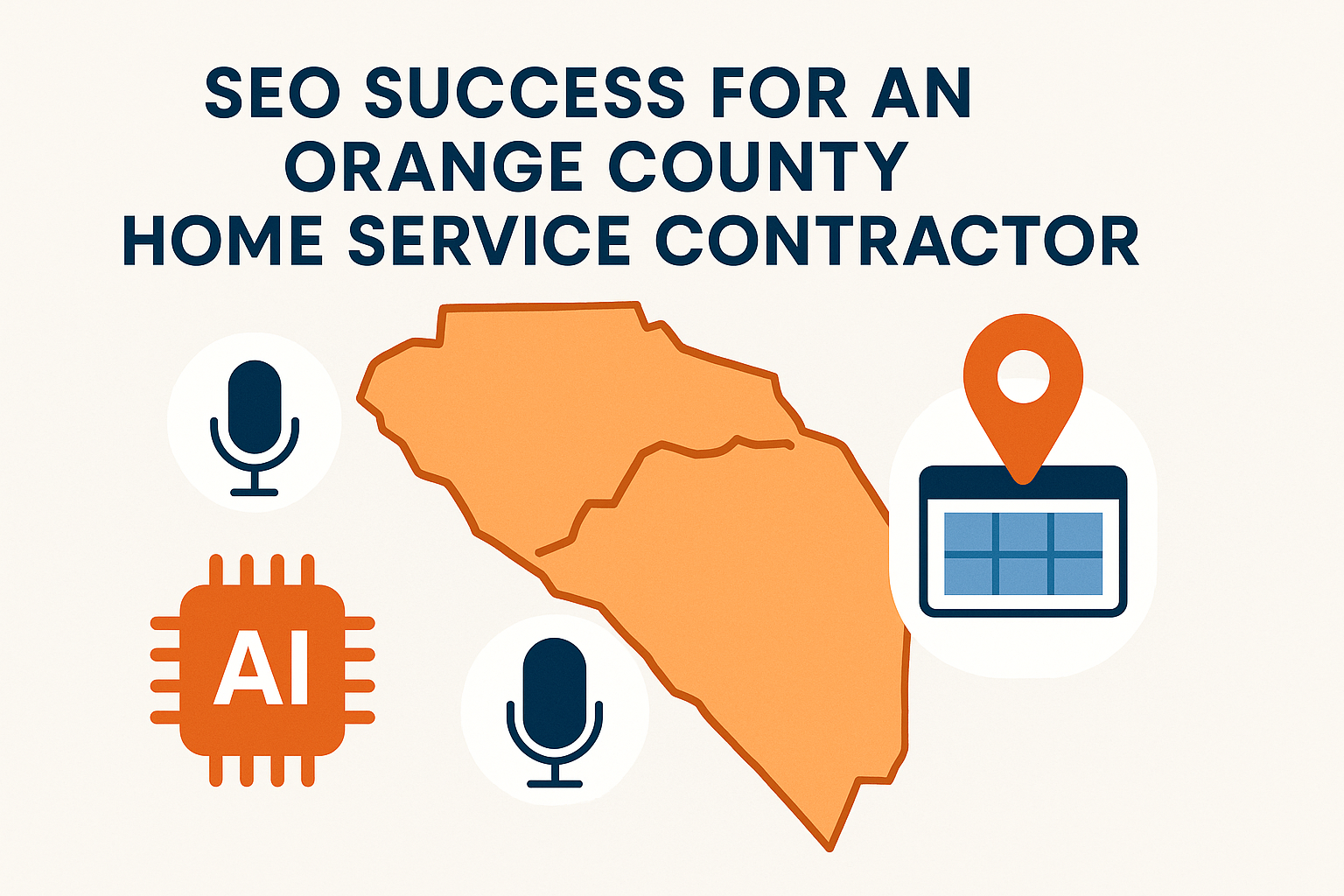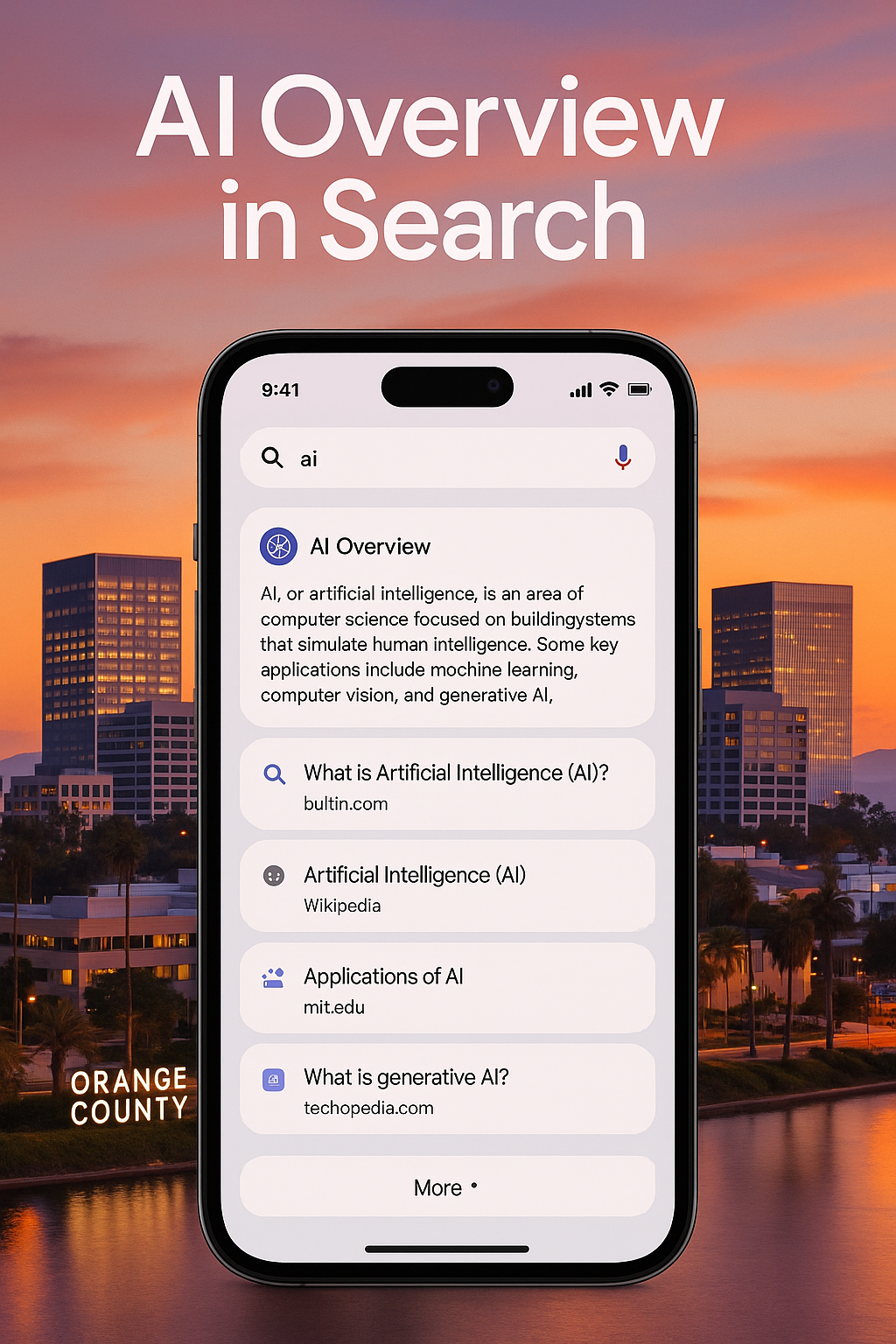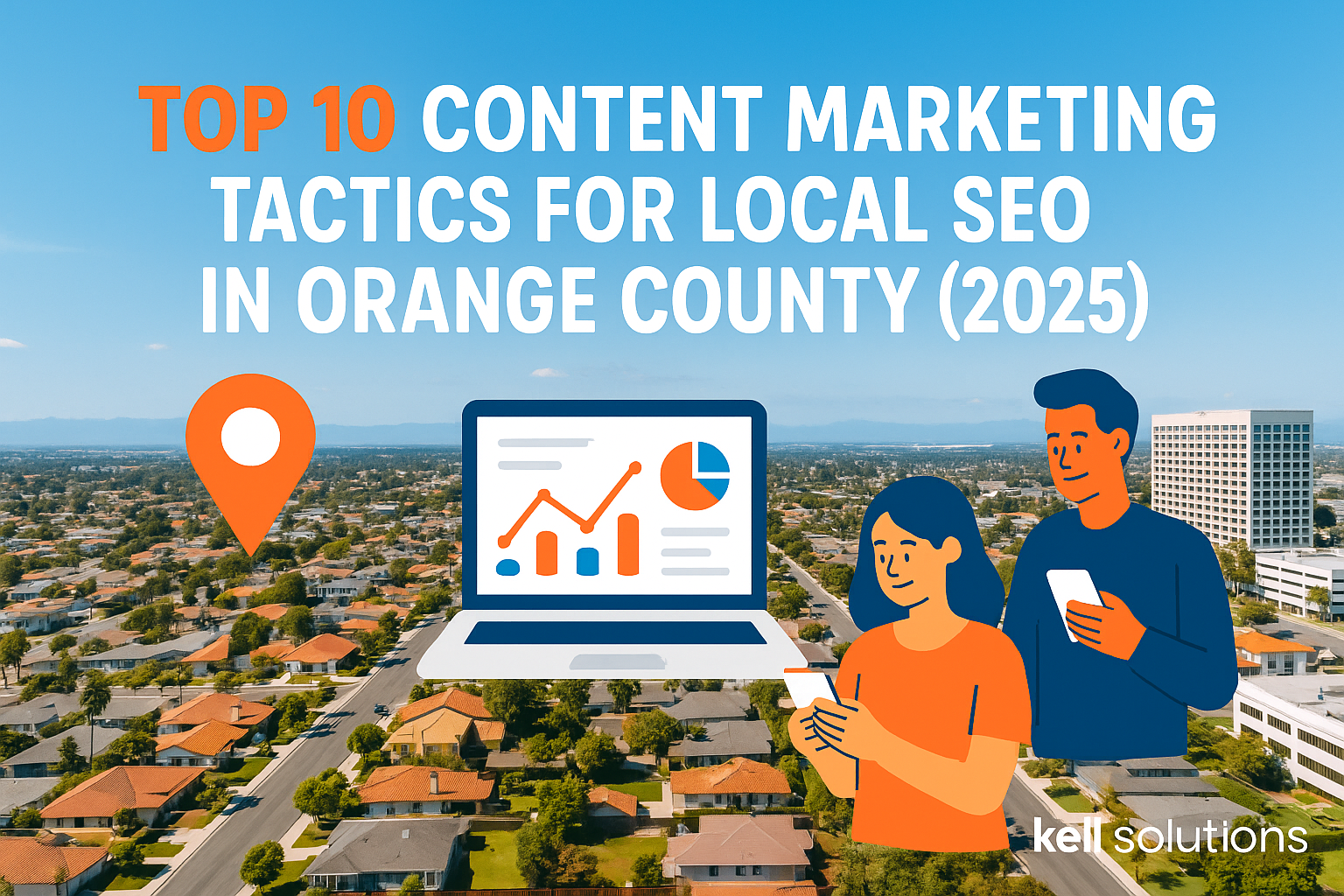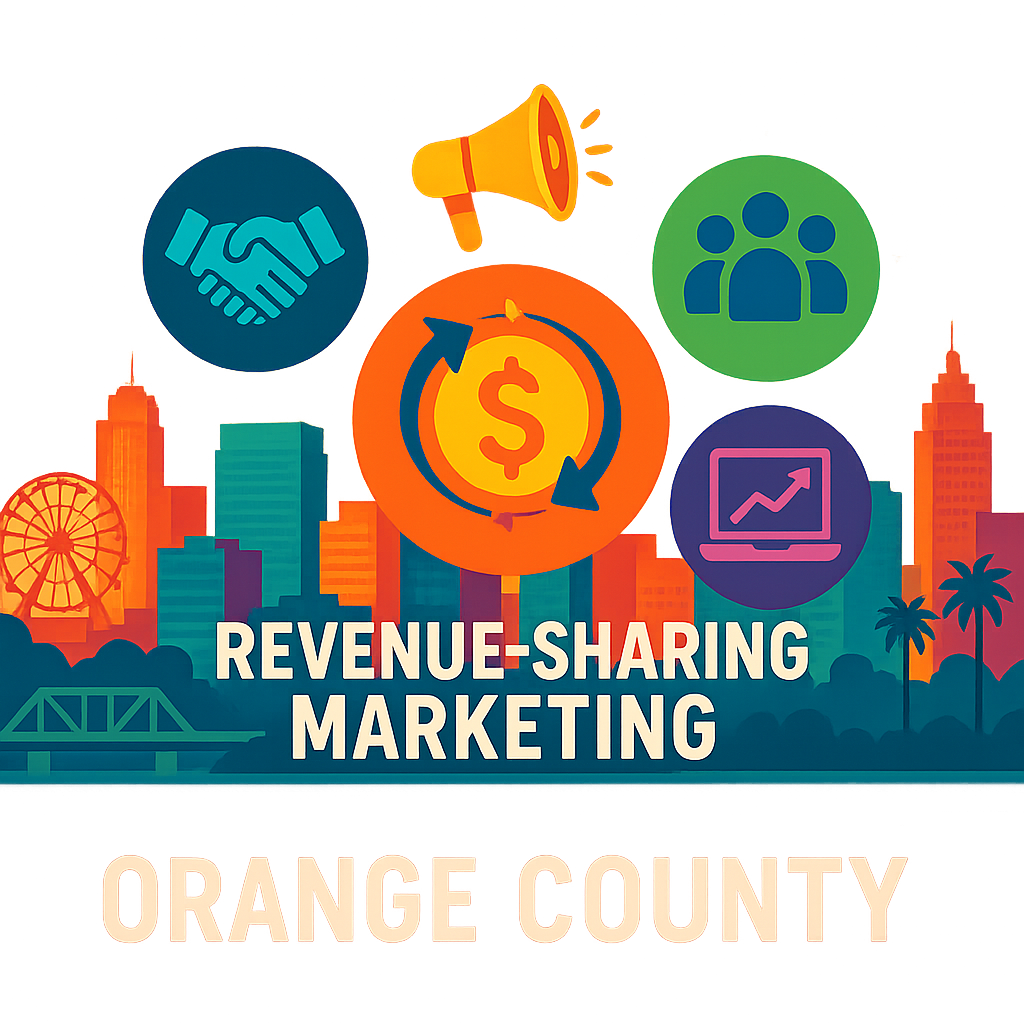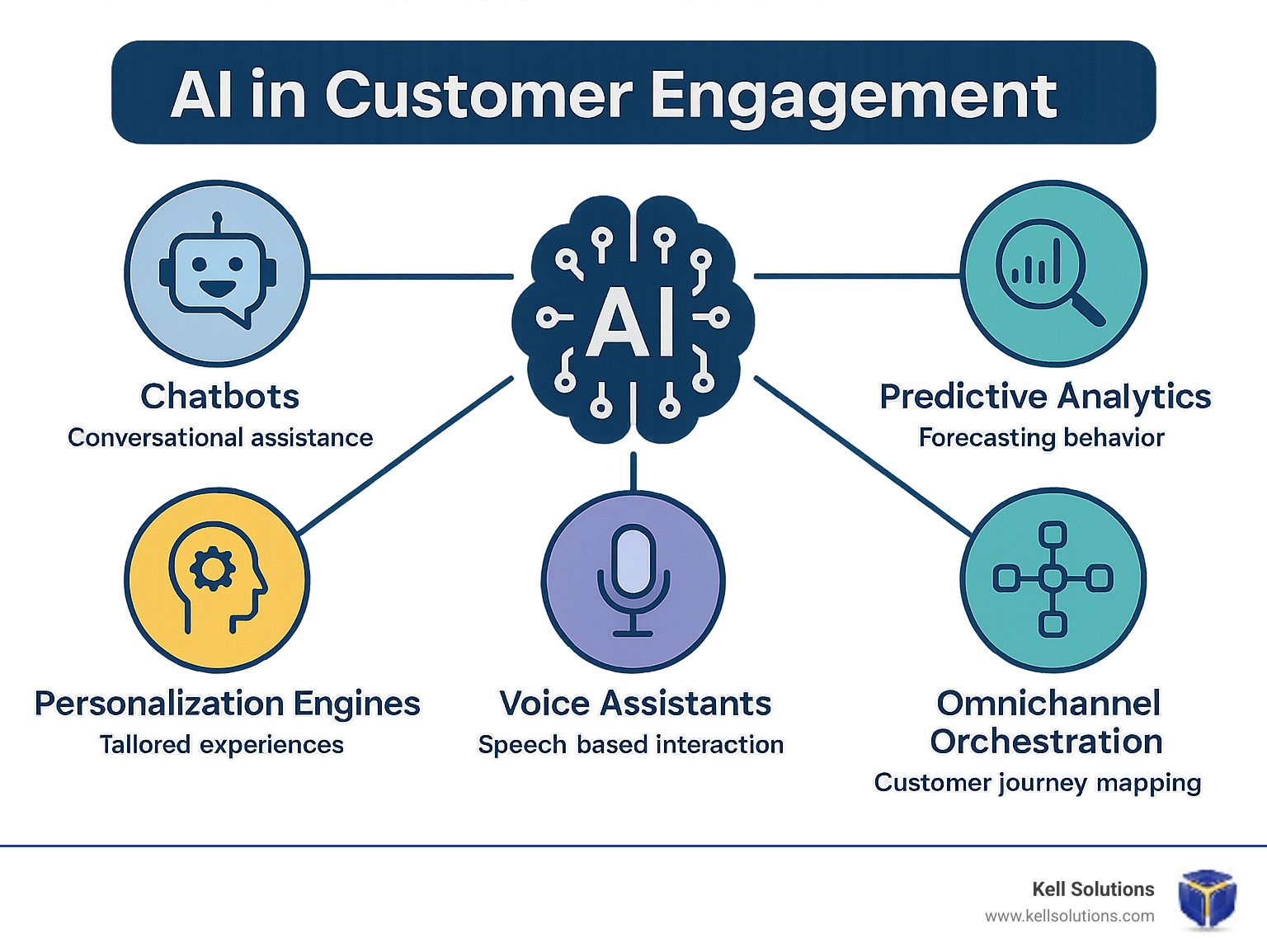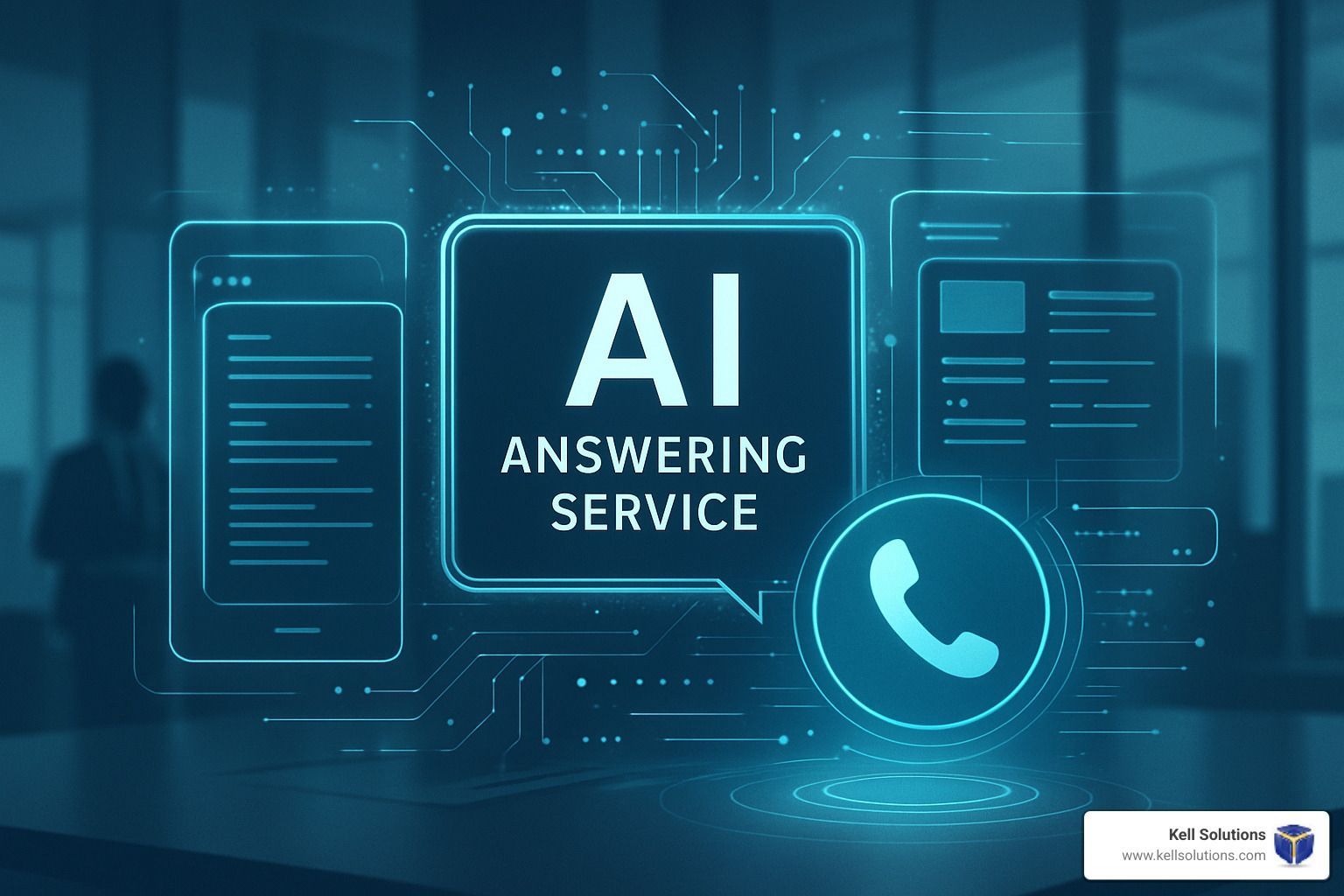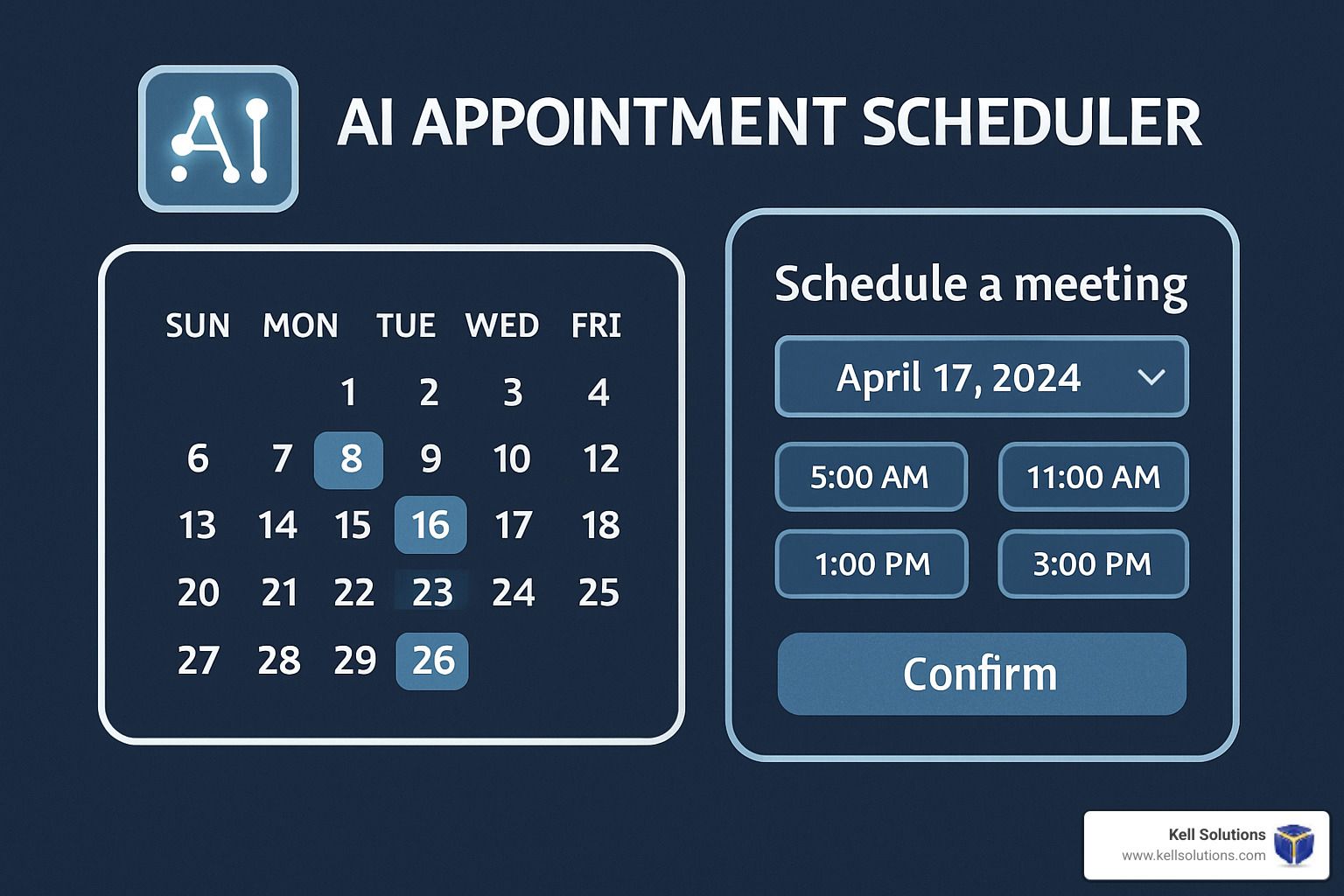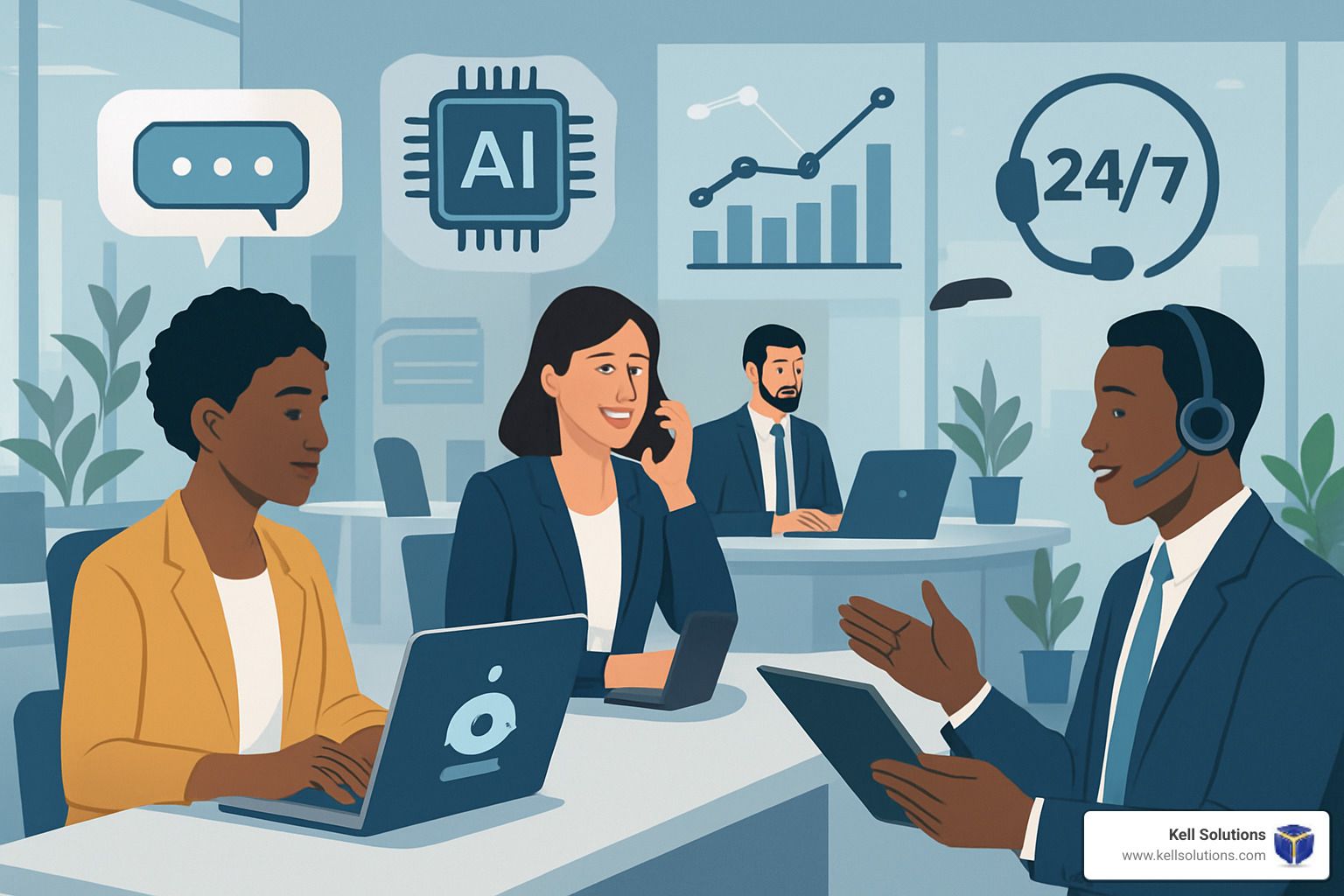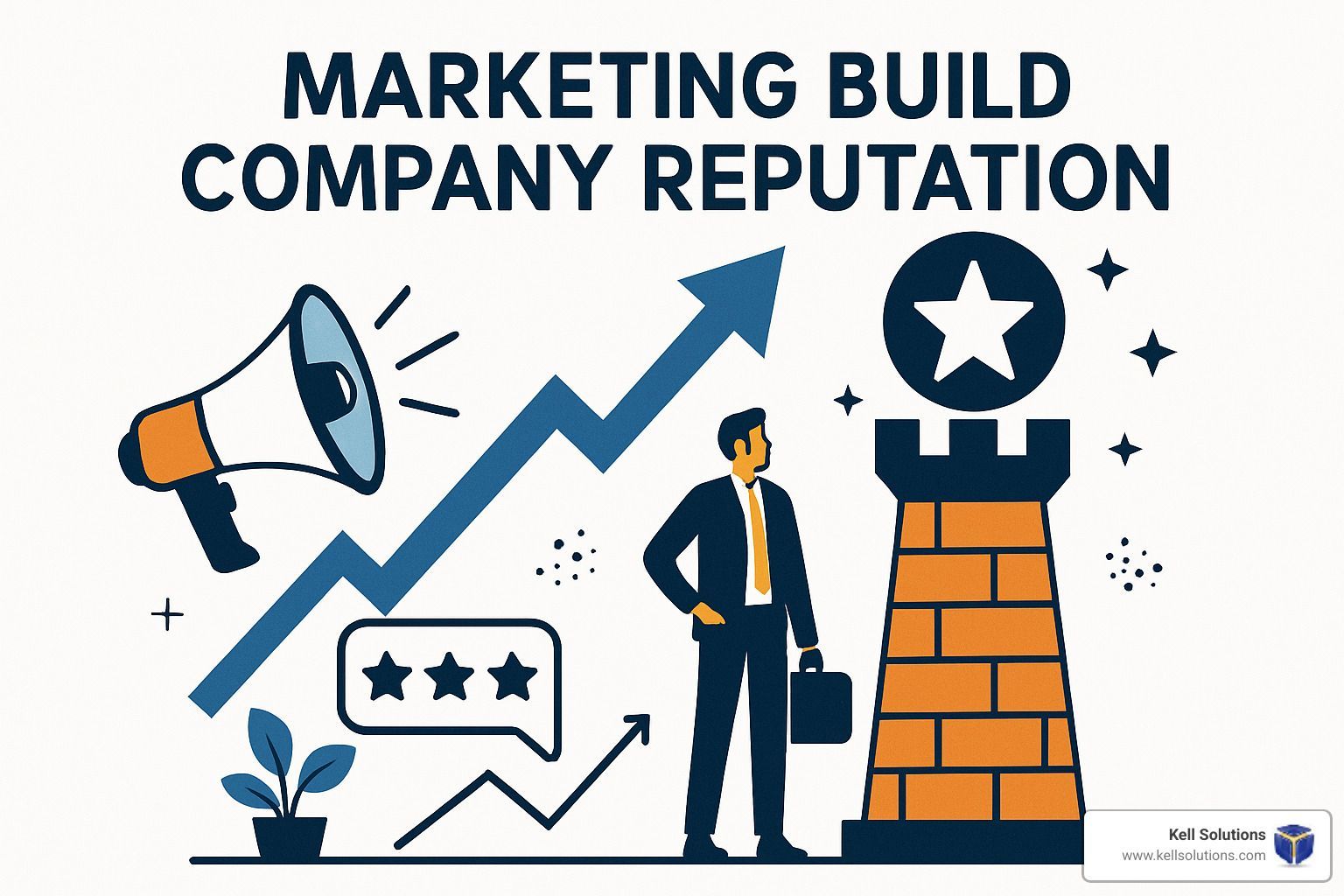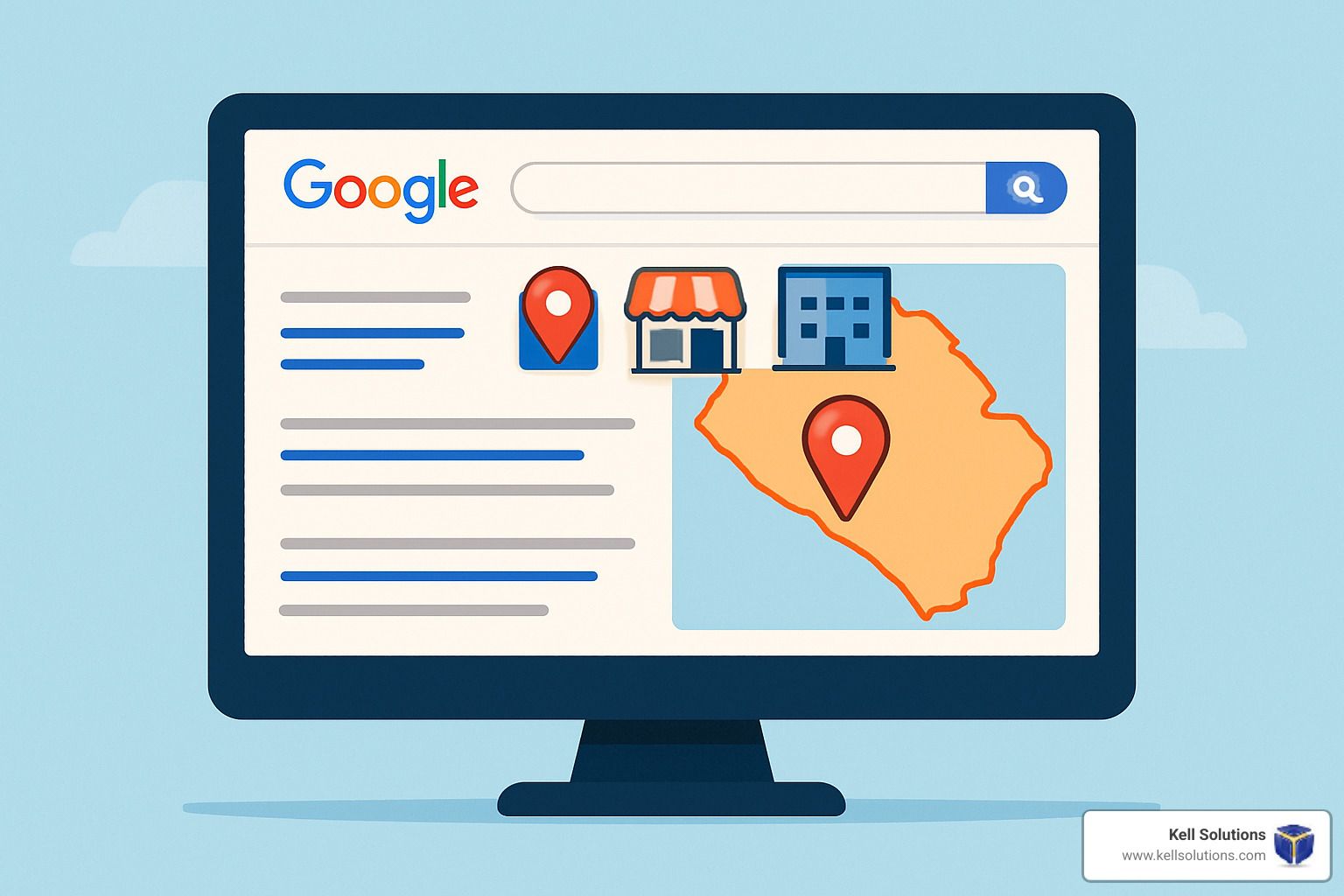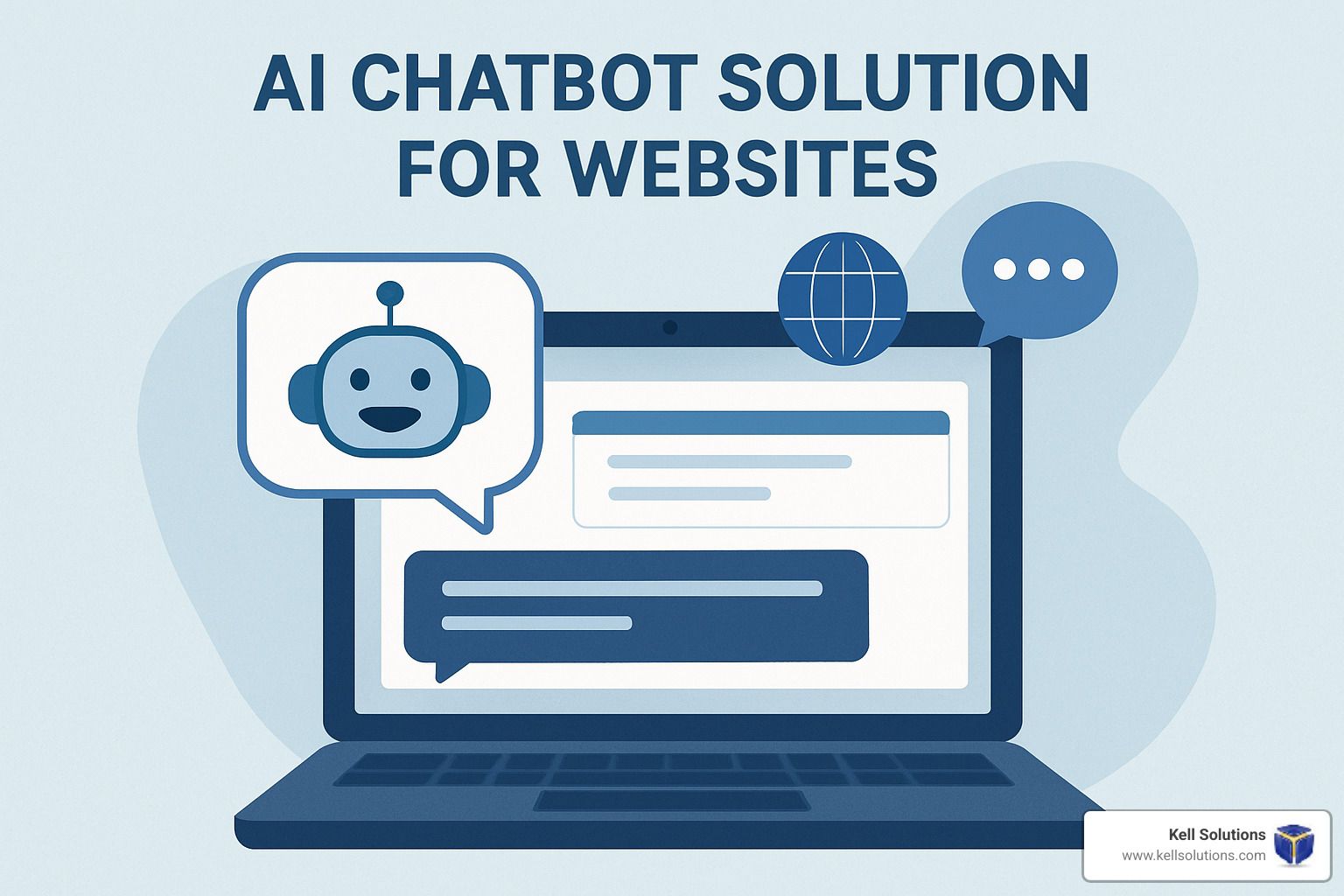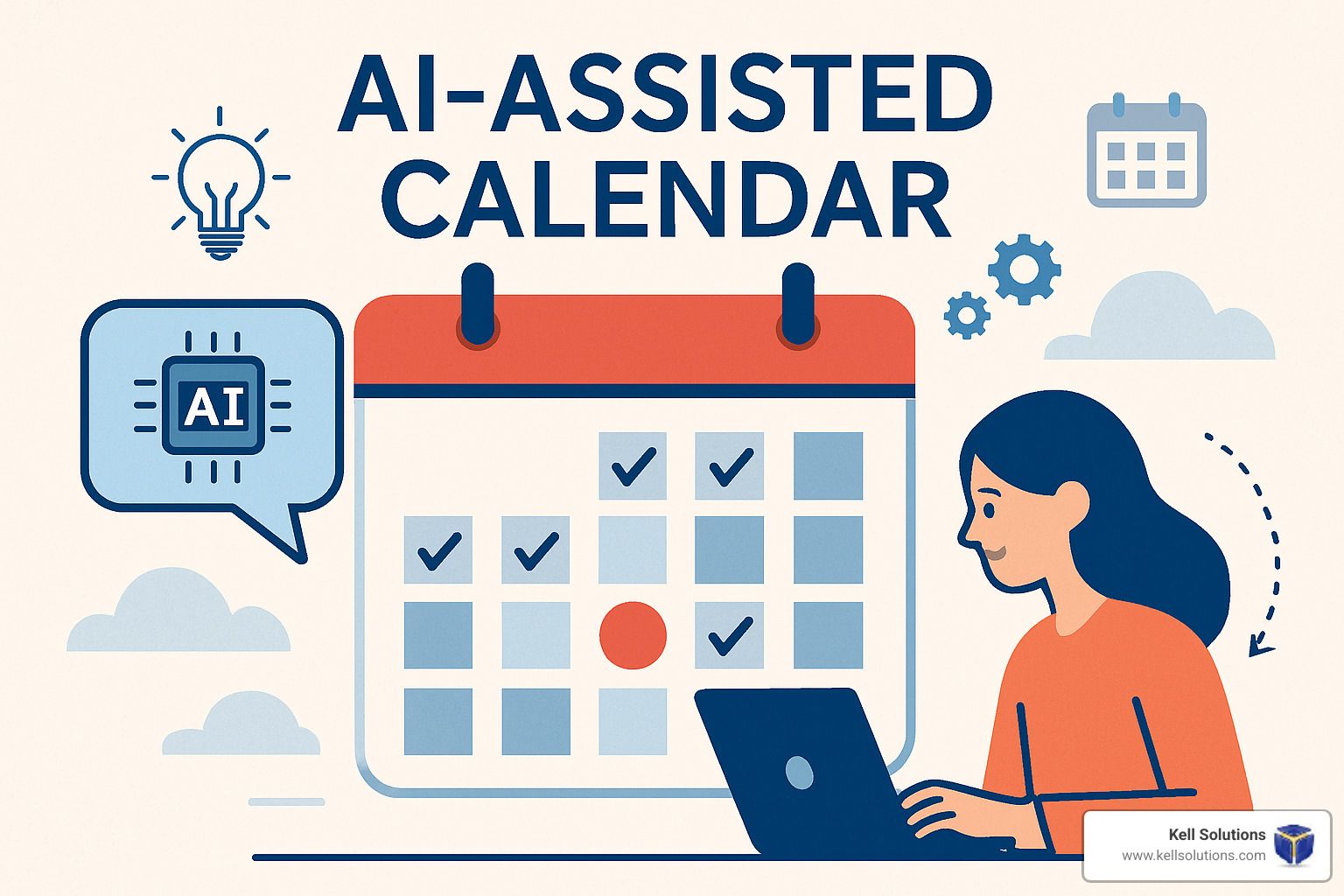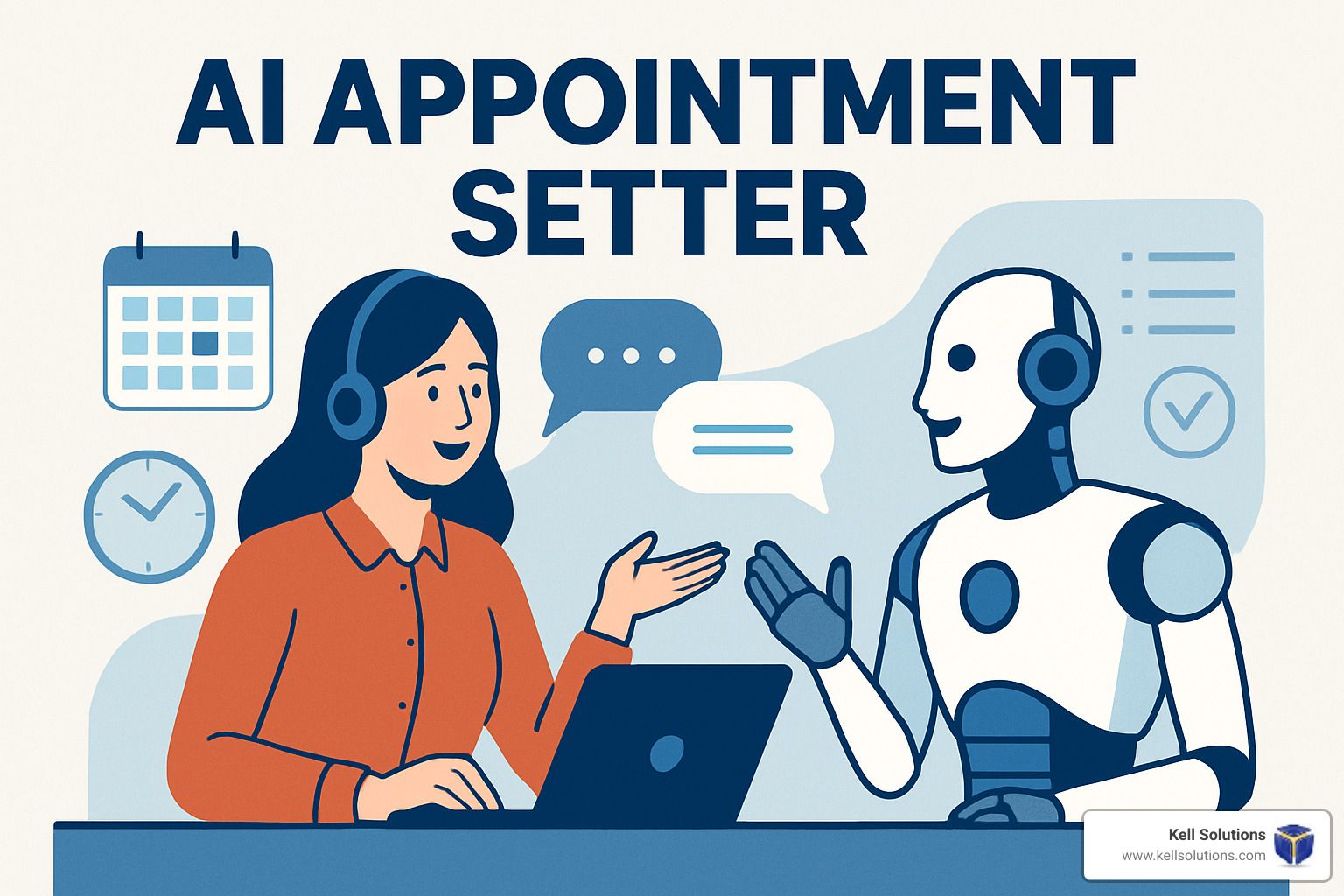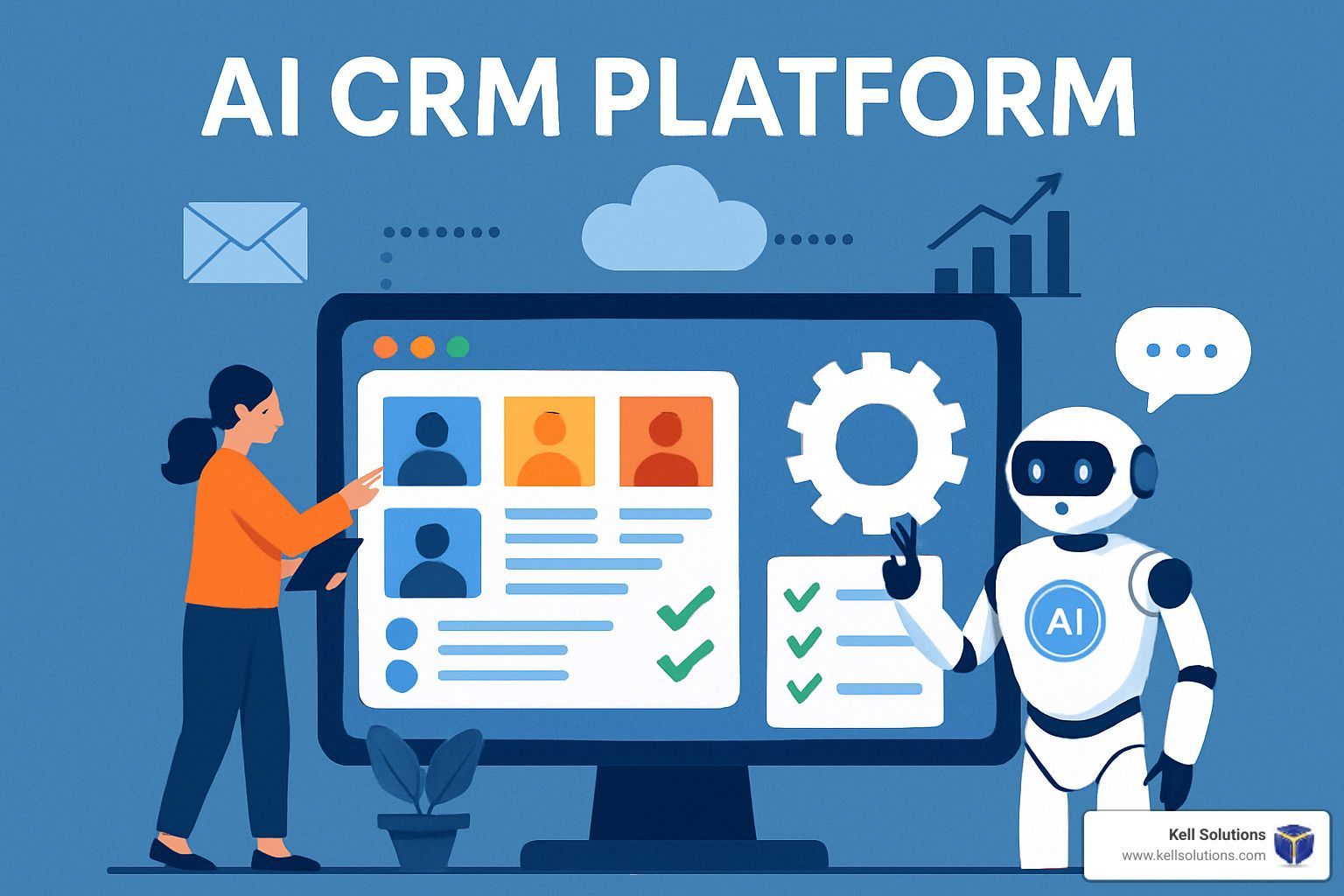Small Business AI Adoption Strategy Guide & Tips
Laying the Foundation for Success
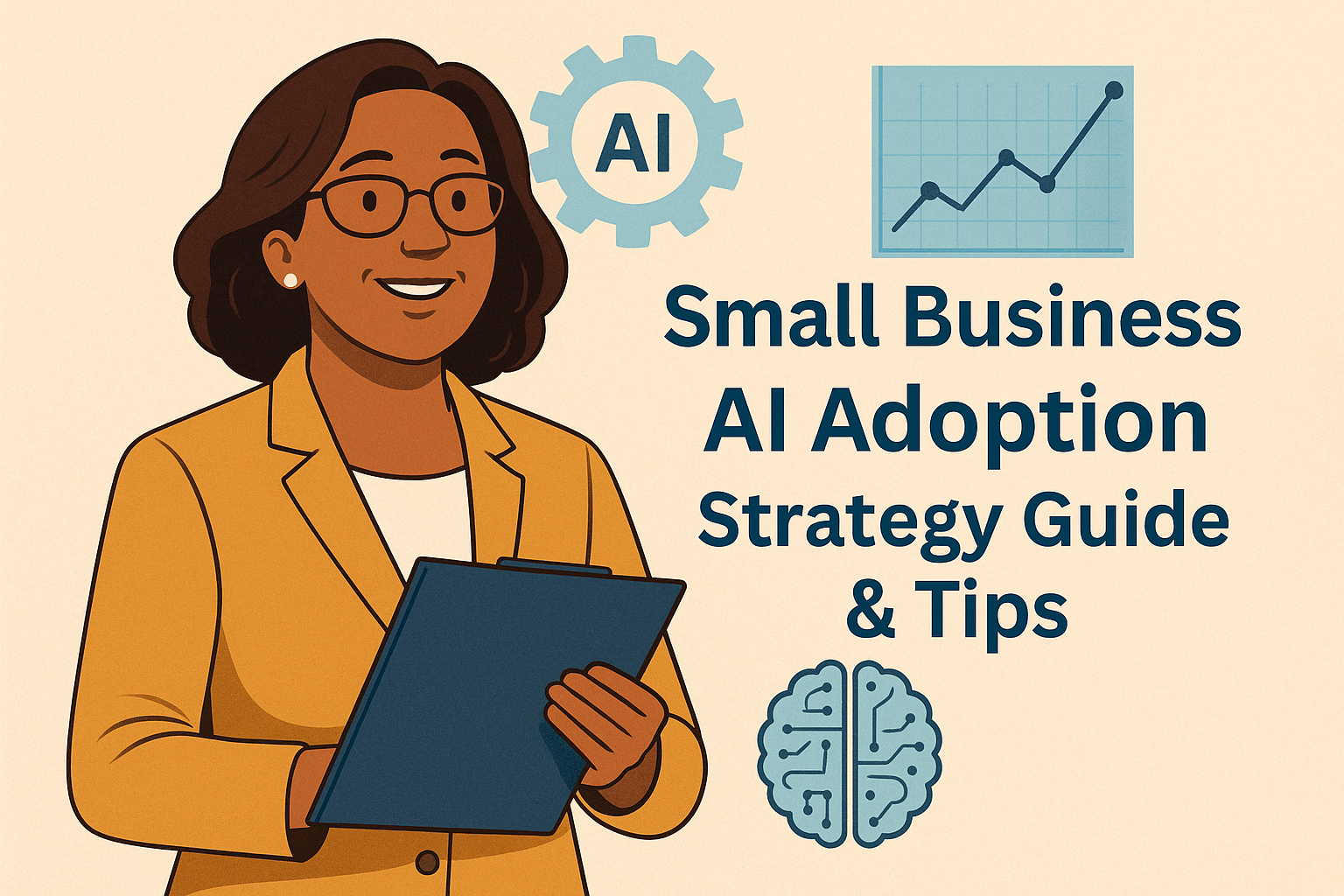
Key Takeaways
- AI can dramatically improve small business operations by automating tasks and providing insights.
- Start with easy-to-implement AI tools like chatbots and automated marketing.
- Select AI solutions that are cloud-based to minimize upfront costs.
- Define clear business objectives to guide AI tool selection.
- Continuous monitoring and adjustment of AI systems ensure optimal performance.
The Importance of AI for Small Businesses
In today's fast-paced digital world, small businesses must adopt innovative technologies to remain competitive. Artificial Intelligence (AI) has emerged as a crucial tool that can help small businesses streamline operations, improve customer service, and enhance decision-making. By leveraging AI, small businesses can automate routine tasks, freeing up time and resources to focus on strategic growth initiatives.
How AI Transforms Business Operations
AI can revolutionize the way small businesses operate by automating repetitive tasks and providing valuable insights. Imagine having a virtual assistant that handles customer inquiries, manages your schedule, and even predicts inventory needs based on past sales data. This is not science fiction; it's the power of AI at work.
For example, a local bakery implemented an AI-driven scheduling tool that reduced labor costs by 20% while improving employee satisfaction through optimized shift planning.
Besides automating tasks, AI can help in analyzing vast amounts of data to uncover trends and patterns that are not immediately obvious. This enables businesses to make informed decisions quickly and accurately.
Competitive Edge Through AI
Incorporating AI into your business strategy can provide a significant competitive edge. By automating mundane tasks, you can focus on strategic areas like product development and customer engagement. AI tools can also help you understand your market better, allowing you to tailor your offerings to meet customer needs effectively.
Impact on Customer Experience and Engagement
AI can enhance customer experience by providing personalized interactions and support. For instance, AI-powered chatbots can handle customer inquiries 24/7, ensuring that your customers receive immediate assistance. This not only improves customer satisfaction but also increases the likelihood of repeat business.
Essential Steps for Adopting AI
Adopting AI in your small business is not just about choosing the right tools; it's about aligning these tools with your business objectives. Here are some essential steps to guide you through the process:
Identify Business Needs and Objectives
Before diving into AI solutions, it's crucial to clearly define your business needs and objectives. Consider the challenges your business currently faces and identify areas where AI could make a significant impact. Are you looking to improve customer service, streamline operations, or enhance decision-making?
Once you've identified your goals, prioritize them. This will help you focus on AI tools that align with your strategic objectives.
Selecting the Right AI Tools and Solutions
With a clear understanding of your business needs, the next step is selecting the right AI tools. Start small by implementing easy-to-use solutions that require minimal technical expertise. For example, chatbots and automated email marketing platforms are great starting points for small businesses.
Consider cloud-based AI solutions, which often offer affordable pricing models and require less infrastructure investment. This approach allows you to scale your AI capabilities as your business grows.
Building an Implementation Plan
Once you've selected your AI tools, it's time to develop an implementation plan. This plan should outline the steps needed to integrate AI into your existing systems, including timelines, resource allocation, and potential challenges.
Involve key stakeholders in the planning process to ensure everyone is on the same page. This collaborative approach will help you anticipate and address potential roadblocks.
Training and Preparing Your Team
Your team plays a crucial role in the successful adoption of AI. Ensure they are adequately trained to use the new tools and understand the benefits AI brings to the business. This might involve workshops, online courses, or even bringing in an AI consultant for specialized training.
Most importantly, foster a culture of innovation and openness to change. Encourage your team to experiment with AI tools and provide feedback on their experiences.
Start with Quick Wins and Scalable Solutions
When integrating AI into your small business, it's wise to begin with quick wins that offer immediate benefits. These are AI solutions that are easy to implement and can show noticeable improvements without requiring a complete overhaul of your existing systems. For example, using AI-powered chatbots can instantly enhance customer service by providing 24/7 support and handling common inquiries efficiently.
As you see positive results from these initial implementations, consider scaling up. Gradually introduce more complex AI tools that align with your long-term business goals. This step-by-step approach minimizes risk and helps your team adapt to the new technology seamlessly.
Utilizing Cloud-Based AI Solutions
Cloud-based AI solutions offer several advantages for small businesses. They are generally more affordable, as they eliminate the need for extensive on-site infrastructure. This is particularly beneficial for small businesses with limited budgets. Additionally, cloud-based solutions often come with scalable pricing models, allowing you to pay for only what you need.
For instance, a small retail store used a cloud-based AI inventory management system to reduce stockouts by 30% and improve sales forecasting accuracy.
These solutions are also easier to integrate with your existing systems, reducing the complexity of the implementation process. Moreover, cloud-based AI tools are frequently updated with the latest features and improvements, ensuring that your business always has access to cutting-edge technology.
When choosing a cloud-based AI solution, consider factors such as ease of use, customer support, and data security. Ensure that the provider you choose has a strong track record of reliability and can meet your specific business needs.
Monitoring and Adjusting AI Systems
Once your AI systems are in place, continuous monitoring is essential to ensure they are performing optimally. Regularly review system performance and analyze the data to identify areas for improvement. This proactive approach allows you to make timely adjustments, ensuring that your AI tools continue to deliver value to your business.
It's also important to solicit feedback from your team and customers. Their insights can provide valuable information on how well the AI systems are working and highlight any potential issues that need addressing. By actively monitoring and adjusting your AI systems, you can maximize their effectiveness and drive better business outcomes.
Common Pitfalls in AI Adoption and How to Avoid Them
Adopting AI in your small business comes with its own set of challenges. Being aware of these common pitfalls can help you navigate the adoption process more smoothly and avoid costly mistakes.
Overcoming Integration Challenges
One of the biggest hurdles in AI adoption is integrating new systems with existing ones. This can be particularly challenging if your current infrastructure is outdated or incompatible with the new technology. To overcome this, conduct a thorough assessment of your existing systems and identify potential integration issues before implementing AI solutions.
Engage with your IT team or external consultants to develop a detailed integration plan. This plan should outline the steps needed to ensure a seamless transition, including data migration, system compatibility checks, and testing phases. By addressing integration challenges early on, you can minimize disruptions and ensure a successful AI implementation.
Setting Realistic Expectations for AI Costs
Another common pitfall is underestimating the costs associated with AI adoption. While AI can offer significant benefits, it's essential to have a realistic understanding of the financial investment required.
- Initial setup costs: Consider expenses related to purchasing software, hardware, and any necessary infrastructure upgrades.
- Ongoing costs: Factor in costs for maintenance, updates, and support services.
- Training and development: Allocate resources for training your team and developing the necessary skills to manage AI systems.
By setting a realistic budget and understanding the full scope of costs involved, you can avoid financial surprises and ensure that your AI investment delivers a positive return.
Moreover, explore different pricing models offered by AI solution providers. Many offer flexible payment options, such as pay-as-you-go or subscription-based models, which can help manage costs more effectively.
Ensuring Human Oversight and Accountability
While AI can automate many tasks, it's crucial to maintain human oversight and accountability. AI systems can make mistakes, and without proper supervision, these errors can have significant consequences for your business. For more insights on how to effectively integrate AI, consider exploring this guide on AI planning considerations.
- Establish clear guidelines for AI usage, including decision-making boundaries and escalation processes.
- Assign specific team members to oversee AI operations and ensure compliance with established guidelines.
- Regularly review AI outputs to identify any anomalies or issues that require human intervention.
By maintaining a balance between AI automation and human oversight, you can leverage the benefits of AI while minimizing risks.
Maximizing ROI from AI Investments
To truly benefit from AI, it's essential to focus on maximizing the return on your investment. This involves not only implementing AI solutions effectively but also continuously evaluating their impact on your business.
Start by setting clear benchmarks and success metrics for your affordable AI solutions. These metrics should align with your business objectives and provide a framework for measuring the impact of AI on your operations.
Measuring Small Busiess Success and Setting Benchmarks
- Define key performance indicators (KPIs) that reflect your business goals, such as increased sales, improved customer satisfaction, or reduced operational costs.
- Regularly track these KPIs to assess the effectiveness of your AI systems.
- Use data analytics tools to gain deeper insights into AI performance and identify areas for improvement.
By setting benchmarks and measuring success, you can ensure that your AI investments deliver tangible benefits to your business.
It's also important to remain flexible and open to change. As your business evolves, so too should your AI strategies. Continuously evaluate your AI systems and make adjustments as needed to ensure they continue to meet your business needs.
Continuous Improvement and System Updates
AI technology is constantly evolving, and staying up-to-date with the latest advancements is crucial for maximizing ROI. Regularly update your AI systems to incorporate new features and improvements. This not only enhances system performance but also ensures that your business remains competitive.
Leveraging AI for Business Growth
Finally, leverage AI to drive business growth by exploring new opportunities and markets. AI can help you identify emerging trends, understand customer preferences, and develop innovative products and services.
Here are some ways to leverage AI for growth:
- Use AI-driven analytics to identify untapped market segments and tailor your offerings accordingly.
- Enhance product development by using AI insights to create solutions that meet customer needs more effectively.
- Expand your reach by automating marketing campaigns and optimizing customer engagement strategies.
By strategically leveraging AI, you can unlock new growth opportunities and position your business for long-term success.
Tools and Resources for Small Business AI Adoption
To successfully adopt AI in your small business, it's essential to have the right tools and resources at your disposal. These will not only simplify the adoption process but also ensure that you can fully leverage the benefits of AI. Let's explore some recommended tools, training resources, and community networks that can support your AI journey.
Recommended AI Tools for Beginners
Starting with the right AI tools can make a significant difference in your adoption experience. Here are some beginner-friendly options:
- Chatbots: Platforms like Chatfuel and ManyChat offer user-friendly interfaces for creating chatbots that enhance customer service.
- Automated Marketing: Tools like Mailchimp and HubSpot provide AI-driven features for automating email campaigns and analyzing customer interactions.
- Data Analytics: Google Analytics and Tableau offer powerful analytics tools that use AI to provide insights into customer behavior and business performance.
Training and Support Resources
Equipping yourself and your team with the necessary skills is crucial for successful AI Adoption. Here are some resources to consider:
- Online Courses: Platforms like Coursera and Udemy offer courses on AI fundamentals and specific tools, providing a solid foundation for beginners.
- Webinars and Workshops: Many AI tool providers offer webinars and workshops to help users understand their products better and maximize their benefits.
- AI Consultants: Hiring an AI consultant, like Kell Web Solutions, can provide personalized guidance and support, especially for businesses new to AI.
Community and Networking for AI Enthusiasts
Connecting with others in the AI community can offer valuable insights and support. Here are some ways to get involved:
- Online Forums: Platforms like Reddit and Stack Overflow have active AI communities where you can ask questions and share experiences.
- Meetup Groups: Look for local AI meetup groups to network with other professionals and learn from their experiences.
- Professional Associations: Joining organizations like the Association for the Advancement of Artificial Intelligence (AAAI) can provide access to resources and events.
Frequently Asked Questions
As you embark on your AI adoption journey, you may have some questions. Here are answers to common queries to help guide you.
What are the best AI tools for small businesses?
Choosing the right AI tools depends on your specific business needs. For customer service, chatbots like Chatfuel and ManyChat are excellent choices. If you're looking to automate marketing, consider platforms like Mailchimp and HubSpot. For data analytics, Google Analytics and Tableau provide comprehensive solutions. These tools are designed to be user-friendly and offer scalable options for growing businesses.
"We started using Chatfuel for our customer inquiries, and it has dramatically improved our response times and customer satisfaction." – A small business owner
When selecting tools, prioritize those that align with your business goals and offer the features you need to succeed.
How can I prepare my team for AI integration?
Preparing your team for AI integration is a critical step in the adoption process. Here's how you can do it:
- Provide comprehensive training on AI tools and their applications.
- Encourage open communication and feedback to address any concerns or challenges.
- Foster a culture of continuous learning and innovation.
- Assign AI champions within your team to lead the integration process.
By taking these steps, you can ensure that your team is well-equipped to embrace AI and maximize its benefits.
What are the risks associated with AI adoption?
While AI offers numerous benefits, it's important to be aware of potential risks. These include data privacy concerns, integration challenges, and the possibility of over-reliance on AI systems. To mitigate these risks, establish clear guidelines for AI use, maintain human oversight, and ensure compliance with data protection regulations.
How can AI improve customer service in small businesses?
AI can significantly enhance customer service by providing personalized interactions and quick responses. Chatbots can handle routine inquiries, freeing up human agents to focus on more complex issues. AI-driven analytics can also provide insights into customer preferences, enabling businesses to tailor their offerings and improve satisfaction.
For example, a small e-commerce business implemented an AI-powered recommendation engine that increased sales by 15% by suggesting relevant products to customers based on their browsing history.
What should I include in my AI adoption plan?
Your AI adoption plan should outline the steps needed to integrate AI into your business effectively. Key components include:
- Clear business objectives and goals for AI adoption.
- A detailed implementation timeline and resource allocation.
- Training and support plans for your team.
- Metrics for measuring success and evaluating AI performance.
By including these elements, you can ensure a structured approach to AI adoption that aligns with your business strategy and drives meaningful results.
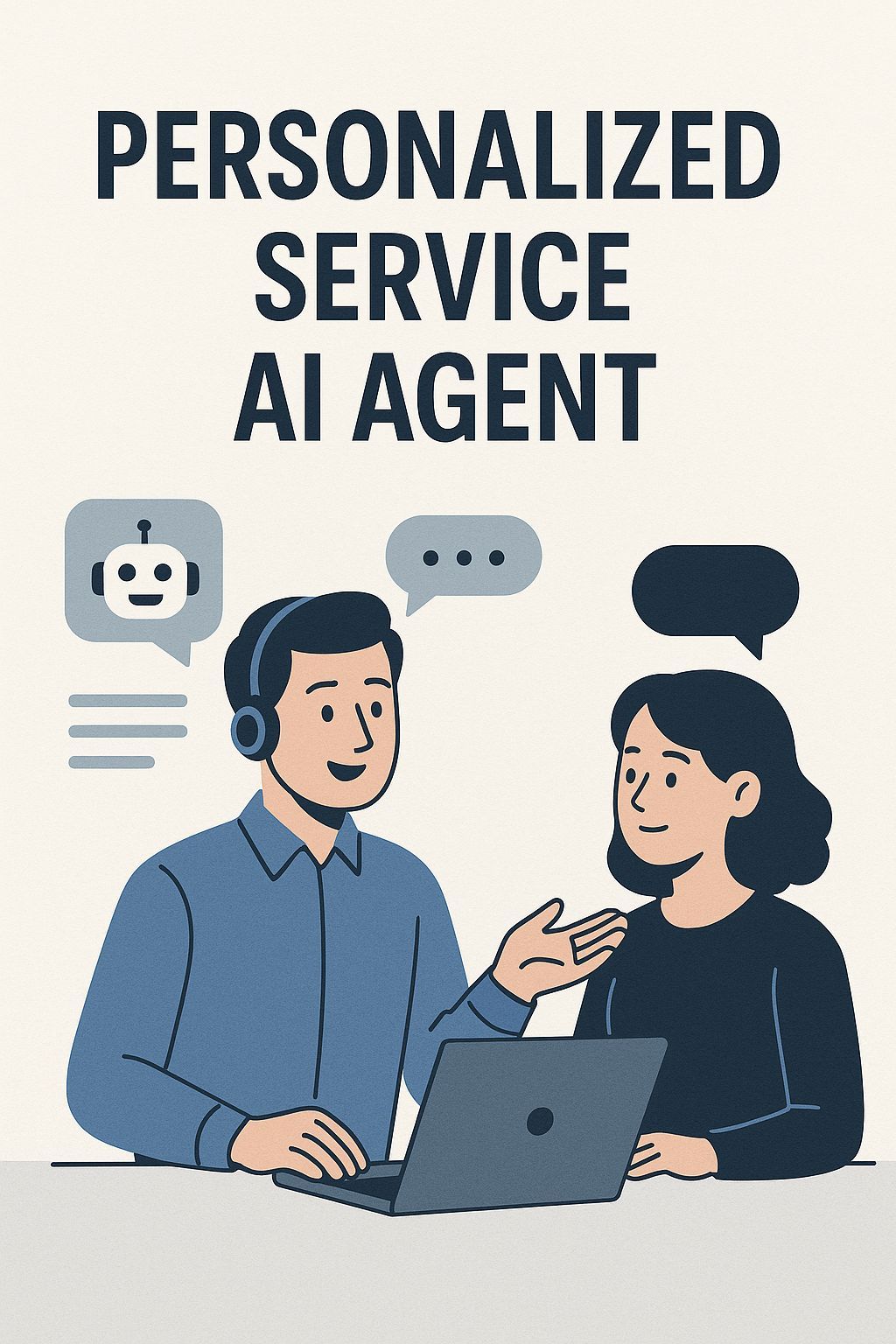

Orange County HVAC Google AI Overview Domination: 7 Proven Strategies to Capture Featured AI Results




